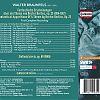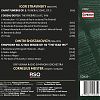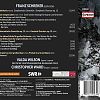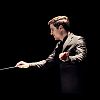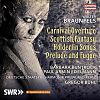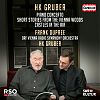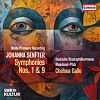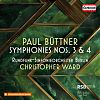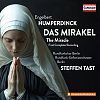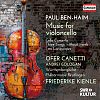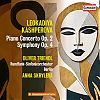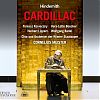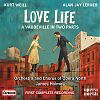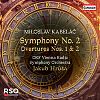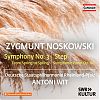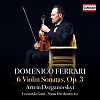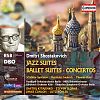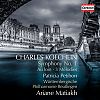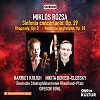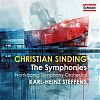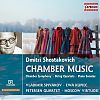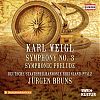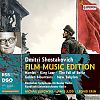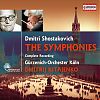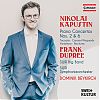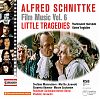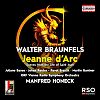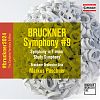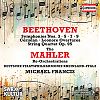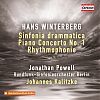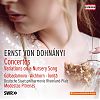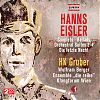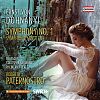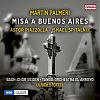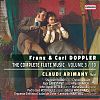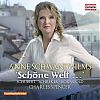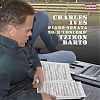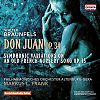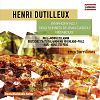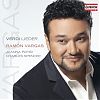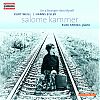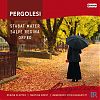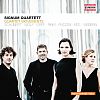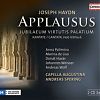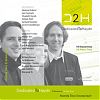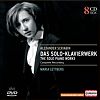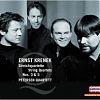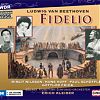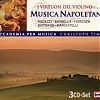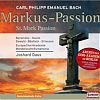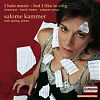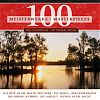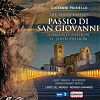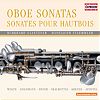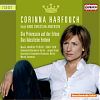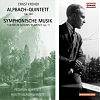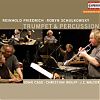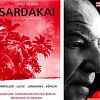cd

WALTER BRAUNFELS
DEUTSCHE STAATSPHILHARMONIE RHEINLAND-PFALZ · GREGOR BÜHL
Walter Braunfels is a composer whose music died twice: Once when the Nazis declared his music “degenerate art”. Then again when post-war Germany had little use for the various schools of tonal music; when the arbiters of taste considered any form of romantic music – almost the whole pre-war aesthetic – to be tainted. This 7threlease of Capriccio’s Braunfels Edition shows again his large range of colorful music and focus this time on his early great Orchestral work Fantastical Apparitions Of a Theme by Hector Berlioz, Op. 25 (1914-1917) – the first complete recording of this amazing composition, compiled with his last orchestral work, the Sinfonia brevis op. 69(1948).
Youtube
Weitere Bilder

STRAVINSKY: CHANT FUNÈBRE · THE FIREBIRD / SHOSTAKOVICH: SYMPHONY NO. 12 ‘THE YEAR OF 1917’
CORNELIUS MEISTER
The both hailed from Russia, and they were contemporaries. But their biographies could hardly have been more different: Igor Stravinsky and Dmitri Shostakovich. The one was an urbane dandy, and the other an introverted melancholic. Both were deeply rooted in the music of their homeland, Stravinsky in the wealth of myths and folk customs of past centuries, and Shostakovich directly in the historical events that shook Russia to its very core and frequently gave rise to existential fears. Cornelius Meister, just awarded as "Conductor of the year" by the german classical music award Opus, knows again how to handle these different colours of sounds and shows them in an most transparent way. The ORF Vienna Radio Symphony Orchestra has been his best disposed partner for these recordings.
Weitere Bilder

Franz Schreker
VALDA WILSON · DEUTSCHE STAATSPHILHARMONIE REIHNLAND-PFALZ · CHRISTOPHER WARD
After the ban the Nazi rabble-rousers had imposed on him, it took a long time for Schreker’s oeuvre to be re-discovered, excavated from the archives, subjected to a re-appraisal and acknowledged as an indispensable element in one of the most fascinating periods of musical history. Although being taken for granted may bear the risk of renewed negligence, Franz Schreker’s status should no longer be challenged today. This makes it possible, apart from dealing with all of his main works also to consider what he himself perhaps did not deem his most ground-breaking works, ones permitting interesting insight into a musician’s workshop and displaying cross-references to his other works like you can hear on this recording.
Weitere Bilder

WALTER BRAUNFELS
TATJANA BLOME, piano DEUTSCHE STAATSPHILHARMONIE REIHNLAND-PFALZ · GREGOR BÜHL
Walter Braunfels is a composer whose music died twice: Once when the Nazis declared his music “degenerate art”. Then again when post-war Germany had little use for the various schools of tonal music; when the arbiters of taste considered any form of romantic music – almost the whole pre-war aesthetic – to be tainted. This 6threlease of Capriccio’s Braunfels Edition shows again his large range of colorful music and focus this time on his works for piano and orchestra from 3 different periods of his life: his first complete orchestral work, the Witches Sabbath, op. 8 (1906), the Concert piece for piano and orchestra op. 64 (1946) and one of his last compositions the Hebridian Dances op. 70(1950/51).
Weitere Bilder

GEORGE ENESCU: STRIGOII (Ghosts)
Rodica Vica · Tiberius Simu · Bogdan Baciu · Alin Anca · Rundfunk-Sinfonieorchester Berlin · GABRIEL BEBEŞELEA
Oratorium in 3 Teilen / Oratorio in 3 Parts (1916)
Text: Mihai Eminescu (1850 – 1889)
Die Königin / The Queen: Rodica Vica,Sopran / soprano
Arald: Tiberius Simu, Tenor / tenor
Der Magus: Bogdan Baciu, Bariton / baritone
Der Erzähler / Narrator: Alin Anca, Bass / bass
PASTORALE FANTASIEfür kleines Orchester (1899)
Pastorale Fantasy for small orchestra (1899)
Nobody knew anything aboutStrigoii. The script, lost together with other items in the turmoil of the First World War, was purchased back by the Director of the Enescu Museum. To make it easier to understand how Strigoiiwas created, it was necessary to undertake the decipherment and reconstruction of the manuscript. When Enescu approached Strigoiiin 1916, it was the result of an older admiration for the poet Mihai Eminescu that was to last until the end of the composer’s life. Whilst Eminescu evinces some similarities to German Romanticism in his poem (Novalis or Tieck), in StrigoiiEnescu also shows stylistic affinities to some contemporaries such as Alexander von Zemlinsky or the young Alban Berg.


